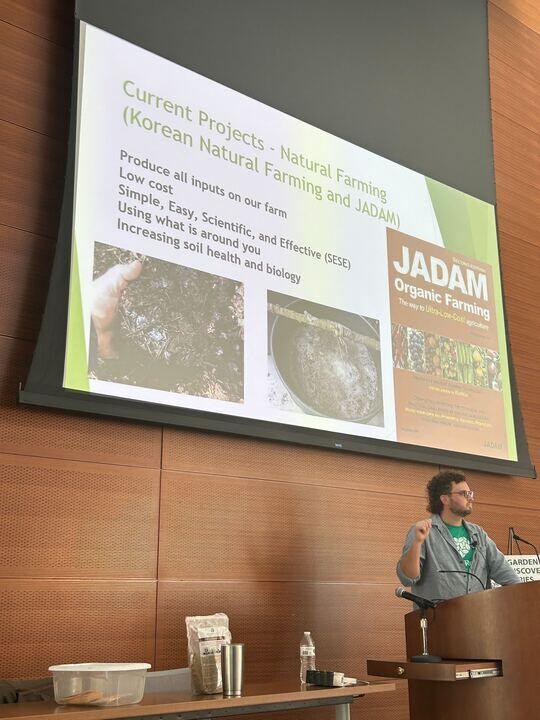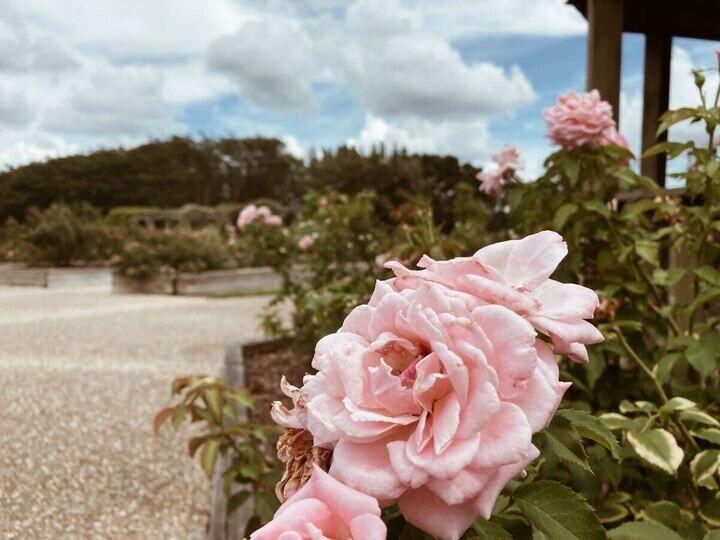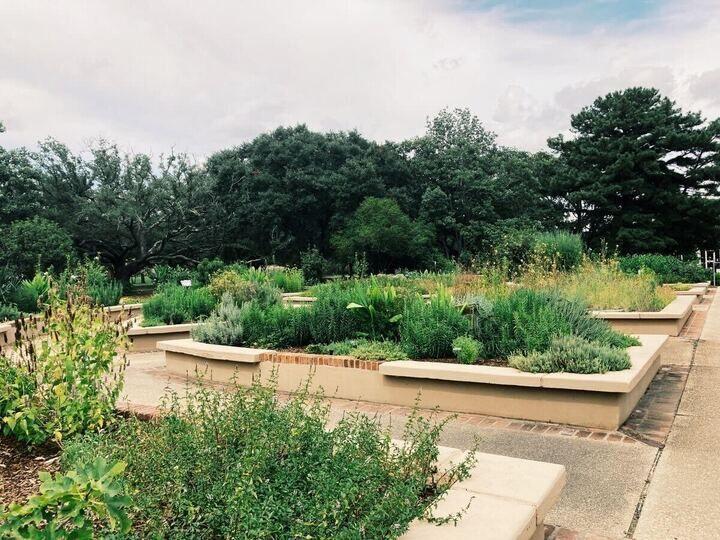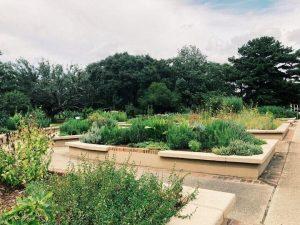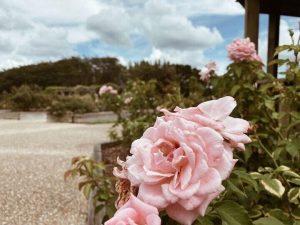Standing before the Baton Rouge Botanic Garden Foundation’s members with pants tucked into his rain-boots, a “Baton Roots” shirt and a button-down was Mitchell Provensal.
Provensal, the senior program director of Baton Roots Community Farm, was invited by the Baton Rouge Botanic Garden Foundation to discuss Baton Roots, its projects and its mission at the Baton Rouge Main Library at Goodwood on Jan. 13.
Baton Roots describes itself as a “Community Farm and Garden network in Baton Rouge” that teaches communities “best practices in sustainable agriculture on an urban farm.” They have a community garden at Howell Park growing produce and is sponsored by organizations such as the LSU AgCenter, Geaux Get Healthy and BREC.
At the talk, Provensal talked about the programs, events and opportunities Baton Roots offers the surrounding communities like “Hustle and Grow” which teaches high school students about stewardship, sustainable urban farming and how food security is essential to the health of a community.
Some of Baton Roots’ most prominent events include Sow Good Saturday, where staff members lead a farming or gardening workshop, a yoga class and a “farm-fresh cooking demo + taste test” directed by a Chef and the American Heart Association. Attendees only need to bring water, comfortable shoes and clothes. Everyone can take some produce home.
Provensal stated Baton Roots’ current goals as: Save more seeds, reduce food waste in Baton Rouge, increase compost production and strengthen food security. He also spoke of some new techniques and technologies he and Baton Roots have used, including Korean natural farming, JADAM farming and bokashi composting, the latter of which was of particular interest to the audience.
A form of composting via fermentation, bokashi composting involves food scraps being sealed in a bin in which some bokashi bran is added, causing an anaerobic reaction that breaks down the food scraps into a compost richer in nutrients than one accomplished through traditional composting. The process is called lacto-fermentation, and Provensal compares it to how kimchi, yogurt, or cheese ferments. It’s easy, the compost tea can help plants grow and it also scares away some bugs because the acidity of the fermentation repels them.
Throughout the presentation audience members chimed in to ask questions, like if bokashi composting is odorless, or to share their own gardening knowledge with the crowd.
Another topic of interest to the audience was Baton Root’s ongoing project to create a Johnson-Su compost bioreactor, a device designed to help soil regain lost nutrients and repair ecosystems damaged by weather and human activity.
Provensal has also been working on a way to save seeds. He noticed how many were going to waste, and for Baton Roots, he created a seed cleaner to save seeds and distribute them to others. He also told the audience how he made a wood contraption to separate seeds from chaff, which is any material that is the seed.
Near the end of the presentation, Provensal spoke about how Baton Roots was recently chosen for the Agroforestry Apprenticeship Program with the USDA and the US Forest Service. Some of the plans for the apprenticeship are to increase tree equity and focus on plant production in Baton Rouge. At the end, Provensal gave some Hibiscus seeds away to the attendees, and some of those same attendees later went out to the garden at the library to get a tour from the leadership of the Baton Rouge Botanic Garden Foundation.
“I think it’s awesome that someone is so invested in food insecurity in the city and that he is teaching people to plant and harvest for themselves,” said Botanic Garden Foundation board member Anita Smith. “So I think it was a fantastic talk today.”
Provensal said in an interview after the presentation, “It’s always good to talk to similar-minded gardening people…trying to promote our program, agriculture and growing more food.”
The Baton Rouge Botanic Garden Foundation holds plant, farming and gardening center meetings once a month where more people like Provensal talk, volunteer and do the upkeep of the gardens at the library. Baton Roots continually works in Baton Rouge and regularly welcomes visitors and volunteers at Howell Park.


